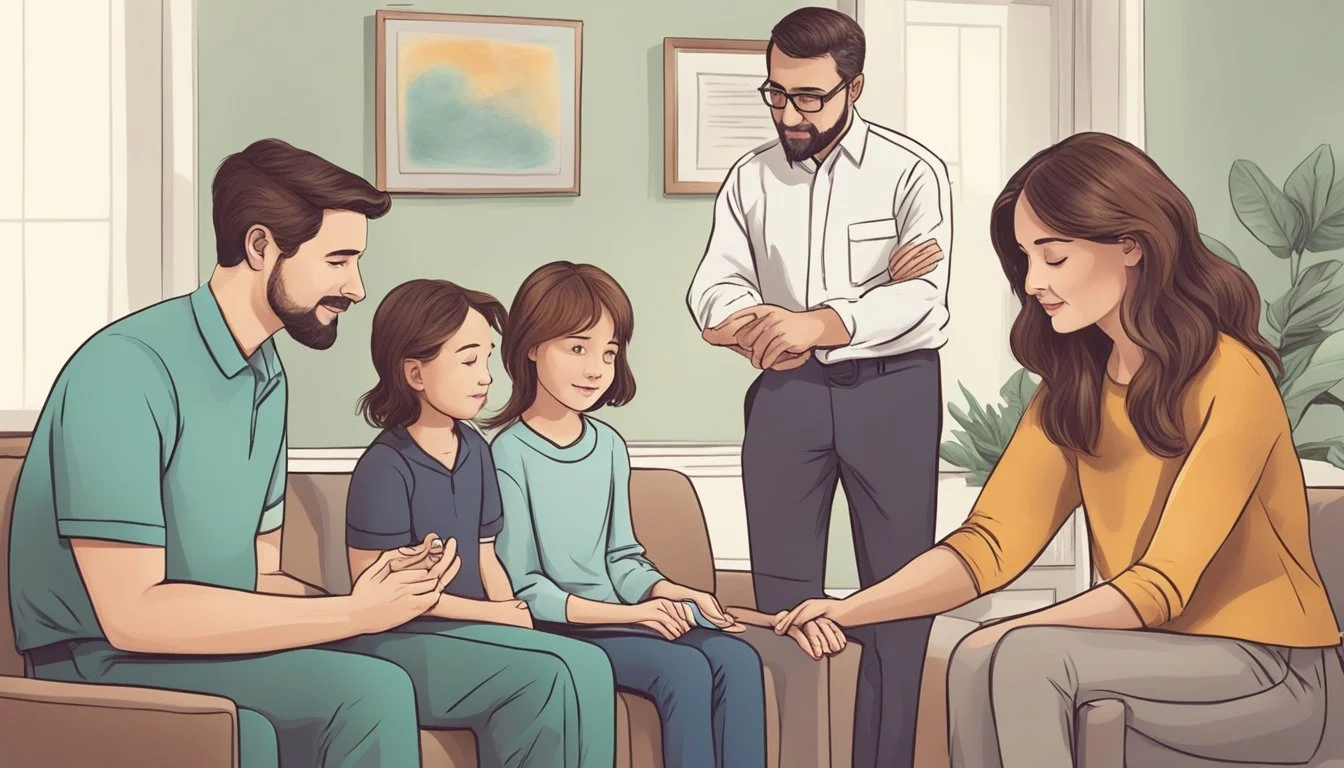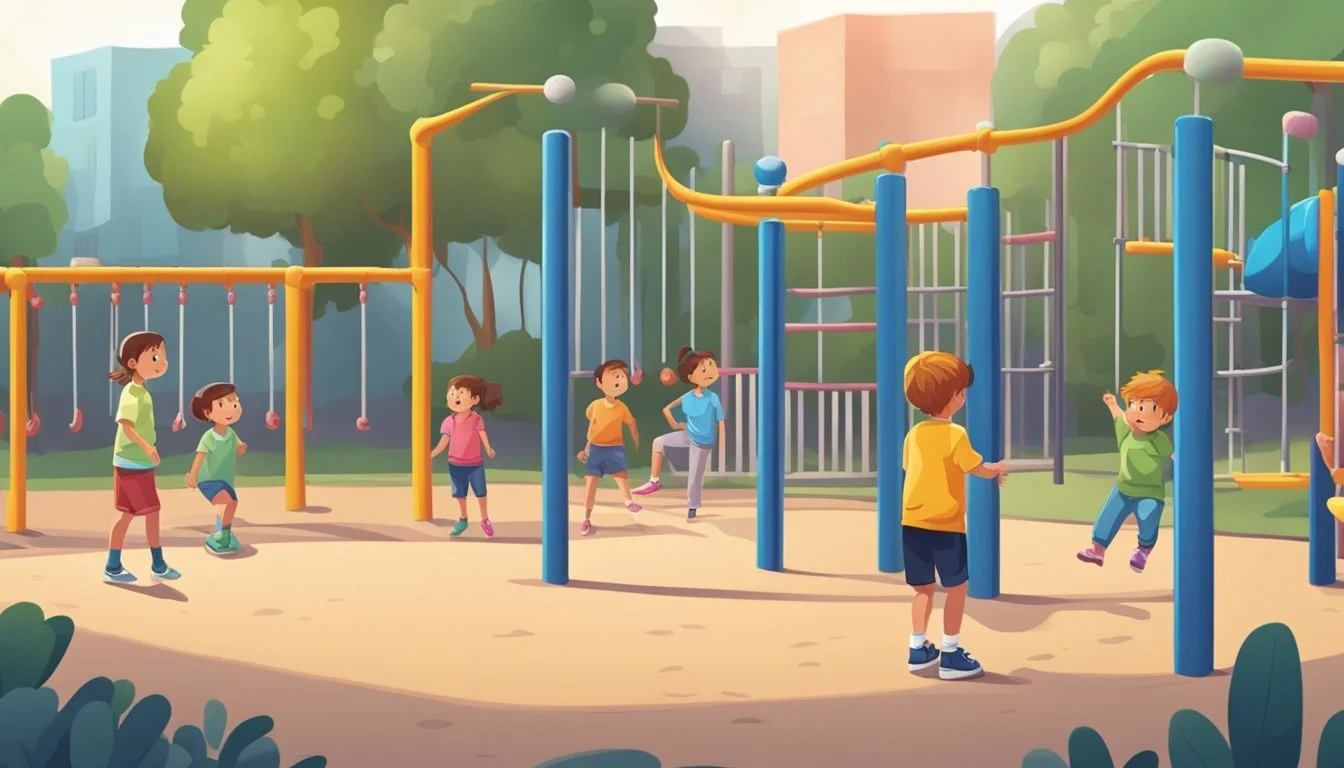Recognizing Sociopathic Traits in Young Children
Sociopathic traits in children can be deeply concerning for parents and caregivers. These behaviors often manifest as aggression, lack of remorse, frequent lying, and disregard for authority. While all children may exhibit some of these traits occasionally, a persistent pattern of such behaviors may indicate a more serious issue.
Sociopathic tendencies in children typically result from a complex interplay of genetic, environmental, and neurological factors. Early identification and intervention are crucial, as these behaviors can potentially develop into conduct disorder or antisocial personality disorder in adulthood if left unaddressed.
Parents who suspect their child may be displaying sociopathic traits should seek professional help promptly. A mental health expert can provide a thorough evaluation and recommend appropriate treatment options. With proper support and guidance, many children with sociopathic tendencies can learn to manage their behaviors and develop healthier coping mechanisms as they grow older.
Understanding Sociopathy in Children
Sociopathy in children is a complex and often misunderstood topic. It involves specific behavioral patterns and emotional traits that deviate from typical child development.
Definition and Characteristics of Sociopathy
Sociopathy is characterized by a persistent disregard for social norms and the rights of others. In children, this may manifest as aggressive behavior, lack of empathy, and frequent rule-breaking.
Signs can include cruelty to animals, lying without remorse, and manipulative actions towards peers or adults. These children may struggle to form genuine connections and show little concern for others' feelings.
It's crucial to note that not all difficult behaviors indicate sociopathy. Many factors, including environment and developmental stage, can influence a child's actions.
The DSM-5 and Antisocial Personality Disorder
The Diagnostic and Statistical Manual of Mental Disorders (DSM-5) does not diagnose sociopathy or antisocial personality disorder in individuals under 18. Instead, it recognizes conduct disorder in children and adolescents.
Conduct disorder involves repetitive patterns of behavior that violate the rights of others or major age-appropriate societal norms. This diagnosis requires at least three specific criteria to be met over 12 months.
If these patterns persist into adulthood, a diagnosis of antisocial personality disorder may be considered after age 18.
Sociopathic Tendencies vs. Sociopathic Disorders
Sociopathic tendencies in children refer to behaviors that resemble adult sociopathy but may not meet full diagnostic criteria. These can include impulsivity, aggression, and difficulty with empathy.
Not all children with these tendencies will develop a personality disorder. Early intervention and support can significantly impact outcomes.
A sociopathic disorder, while not an official diagnosis for children, implies a more severe and persistent pattern of antisocial behaviors. This distinction is important for appropriate treatment planning.
Mental health professionals focus on addressing specific behaviors rather than labeling children as sociopaths. This approach allows for more targeted interventions and avoids potentially harmful stigmatization.
The Development of Sociopathic Behavior in Children
Sociopathic behavior in children stems from a complex interplay of genetic predisposition, environmental influences, and early life experiences. These factors can shape a child's emotional development and social interactions in significant ways.
The Role of Genetics and Environment
Genetic factors play a part in the development of sociopathic traits, but they don't determine a child's fate. Studies suggest that certain genetic variations may increase susceptibility to antisocial behaviors.
Environmental factors, such as family dynamics and social surroundings, interact with genetic predispositions. A child raised in a nurturing environment may be less likely to develop sociopathic tendencies, even with genetic risk factors.
Parenting styles significantly impact a child's emotional and social development. Inconsistent discipline, lack of warmth, or exposure to violence can contribute to the emergence of antisocial behaviors.
Impact of Trauma and Neglect
Childhood trauma and neglect can have profound effects on a child's emotional and social development. Experiences of abuse, abandonment, or severe deprivation may lead to difficulties in forming healthy attachments.
Children who experience chronic stress or trauma may develop coping mechanisms that resemble sociopathic traits. These can include emotional detachment, aggression, or manipulation as survival strategies.
Neglect, particularly emotional neglect, can impair a child's ability to recognize and respond to others' emotions. This deficit in empathy is a hallmark of sociopathic behavior.
Early Warning Signs and Symptoms
Early signs of potential sociopathic behavior in children may include persistent aggression, cruelty to animals, and a lack of remorse for harmful actions. These behaviors often emerge before age 10.
Conduct disorder and oppositional defiant disorder are childhood conditions that may precede the development of adult antisocial personality disorder. Children with these disorders frequently violate rules and social norms.
The Macdonald triad - animal cruelty, fire-setting, and persistent bedwetting - was once thought to predict future violent behavior. However, recent research suggests it's not a reliable indicator on its own.
Callous and unemotional traits in children, such as lack of guilt and limited emotional expression, are considered strong predictors of future antisocial behavior. Early identification of these traits can guide intervention strategies.
Identifying Sociopathy in Adolescents
Recognizing sociopathic traits in teenagers requires careful observation and professional assessment. Adolescence is a complex period of development, and distinguishing between typical rebellious behavior and more serious concerns is crucial.
Differentiating between Sociopathy and Adolescent Rebellion
Typical teenage rebellion often involves pushing boundaries and seeking independence. Sociopathic behavior, however, goes beyond this norm. Adolescents with sociopathic tendencies may exhibit:
Persistent disregard for rules and authority
Lack of empathy or remorse
Manipulation of others for personal gain
Aggression or cruelty towards people or animals
These behaviors are more severe and consistent than typical teenage defiance. They often cause significant problems in multiple areas of the adolescent's life, including school, relationships, and family dynamics.
Diagnosis and Professional Evaluation
A proper diagnosis of sociopathy in adolescents requires a comprehensive evaluation by a mental health professional. This process typically involves:
Clinical interviews with the adolescent and family members
Behavioral assessments and psychological testing
Review of academic and social history
Licensed clinical professional counselors or psychiatrists specializing in adolescent mental health are best equipped to conduct these evaluations. They consider various factors, including:
Severity and duration of concerning behaviors
Impact on daily functioning
Family history and environmental influences
It's important to note that a definitive diagnosis of antisocial personality disorder cannot be made until adulthood.
The Importance of Early Intervention
Early identification and intervention are critical for adolescents showing sociopathic traits. Timely action can help:
Prevent the escalation of harmful behaviors
Improve social skills and emotional regulation
Address underlying mental health issues
Behavioral family intervention is often a key component of treatment. This approach involves:
Teaching parents effective strategies for managing difficult behaviors
Improving family communication and problem-solving skills
Addressing environmental factors that may contribute to the behavior
Individual therapy, such as cognitive-behavioral therapy, can also be beneficial. In some cases, medication may be prescribed to manage specific symptoms or co-occurring mental health conditions.
Contributing Factors to Sociopathic Behavior
Multiple elements can influence the development of sociopathic tendencies in children. These factors often interact in complex ways, shaping a child's behavior and emotional responses over time.
Family Dynamics and Parental Influence
Children learn crucial social and emotional skills from their family environment. Inconsistent or harsh parenting styles can contribute to sociopathic behaviors. Neglect, abuse, or exposure to violence at home may lead to emotional detachment and lack of empathy.
Sociopathic parents can model manipulative behaviors, teaching children to disregard others' feelings. Unstable home lives with frequent conflicts or substance abuse issues can also play a role.
Children who experience limited affection or emotional support may struggle to form healthy attachments. This can result in difficulties understanding and responding to others' emotions appropriately.
Media Exposure: Television and Video Games
Excessive exposure to violent media content may desensitize children to aggression and its consequences. Violent video games, in particular, can reinforce aggressive thoughts and behaviors through repetitive play.
Some studies suggest a link between violent media consumption and decreased empathy in children. However, it's important to note that not all children who engage with violent media develop sociopathic traits.
Media that glorifies antisocial behavior or presents it without consequences may influence impressionable minds. Age-appropriate content and parental guidance can help mitigate potential negative effects.
Peer Relationships and School Environment
Negative peer influences can reinforce sociopathic tendencies in vulnerable children. Bullying experiences, either as the perpetrator or victim, can contribute to antisocial behaviors.
Children who struggle to form positive relationships with peers may develop a skewed perception of social interactions. This can lead to manipulative or aggressive behaviors as a means of coping.
School environments that fail to address behavioral issues effectively may inadvertently enable sociopathic tendencies. Lack of consistent discipline or support can allow problematic behaviors to escalate.
Positive peer relationships and supportive school environments, conversely, can help children develop empathy and social skills. Structured social activities and clear behavioral expectations can promote healthier social development.
Manifestations of Sociopathic Behaviors
Sociopathic behaviors in children can manifest in various concerning ways. These often involve aggression, deception, and disregard for rules or social norms.
Aggression and Violence
Children exhibiting sociopathic tendencies may display frequent aggressive or violent behavior. This can include physical attacks on peers, siblings, or even adults. They might engage in bullying, both physical and verbal.
Some children may show cruelty to animals, which is a serious red flag. Property destruction is another common manifestation, with the child damaging belongings of others or public property without remorse.
Their aggressive outbursts often seem disproportionate to the situation, lacking clear provocation. These children may appear to enjoy causing fear or distress in others.
Deceitfulness, Lying, and Manipulation
Persistent lying is a hallmark of sociopathic behavior in children. Unlike typical childhood fibs, these lies are often elaborate and frequent. The child may lie even when confronted with clear evidence of their dishonesty.
Manipulation tactics are common. The child might exploit others' emotions or use charm to get what they want. They may show remarkable skill in pitting adults against each other.
Stealing is another manifestation, often accompanied by convincing denials when caught. The child might take items from family members, classmates, or stores without apparent guilt.
Antisocial Activities and Rule Violations
Children with sociopathic tendencies often engage in serious rule-breaking behaviors. This can include truancy, running away from home, or sneaking out at night.
Vandalism is a common antisocial activity. The child might deface public property or deliberately damage others' belongings for amusement.
They may show a pattern of disregarding age-appropriate rules at home and school. This could involve refusing to complete assignments, ignoring curfews, or violating safety rules.
Some children might engage in risky behaviors like experimenting with drugs or alcohol at a young age. They often show little concern for their own safety or the consequences of their actions.
Treatment and Support for Sociopathic Children
Early intervention and comprehensive support are crucial for children exhibiting sociopathic traits. Professional help, structured environments, and consistent boundaries form the foundation of effective treatment approaches.
Intervention and Therapy Options
Cognitive Behavioral Therapy (CBT) is a primary treatment for children with sociopathic tendencies. CBT helps kids identify negative thought patterns and develop healthier coping mechanisms. Problem-solving interventional training teaches children how to navigate social situations more appropriately.
Family therapy involves parents and siblings in the treatment process. This approach addresses dysfunctional family dynamics that may contribute to the child's behavior. Therapists work with families to improve communication and create a more supportive home environment.
For adolescents, specialized therapy programs focus on building empathy and social skills. These programs often incorporate peer interactions and role-playing exercises to practice prosocial behaviors.
Involvement of Support Groups and Counseling
Support groups provide a valuable resource for families dealing with sociopathic children. Parents can share experiences, coping strategies, and emotional support with others facing similar challenges.
Professional counseling offers individualized guidance for parents and caregivers. Counselors help adults develop effective parenting techniques tailored to their child's specific needs.
Group therapy sessions for children can foster social skills development. In these settings, kids learn to interact positively with peers under professional supervision.
Creating Structure and Clear Boundaries
Establishing a consistent daily routine helps sociopathic children feel secure and understand expectations. Clear schedules for meals, homework, and bedtime provide structure and predictability.
Setting firm, unambiguous rules is essential. Parents should clearly communicate consequences for both positive and negative behaviors. Consistency in enforcing these rules is crucial for effectiveness.
Positive reinforcement techniques encourage desirable behaviors. Rewards systems, praise, and recognition of good choices can motivate children to continue improving their conduct.
Creating a nurturing environment while maintaining boundaries is key. Physical affection, quality time, and verbal affirmations of love should be balanced with appropriate discipline when needed.
Social and Legal Consequences
Children exhibiting sociopathic tendencies may face serious repercussions in both social and legal spheres. Their actions can lead to involvement with the juvenile justice system and have significant impacts on their communities.
Juvenile Legal System and Detention Centers
Sociopathic behaviors in children often result in early encounters with law enforcement. First arrests typically occur during adolescence for offenses like theft, vandalism, or assault. These delinquent behaviors may escalate over time, leading to more serious criminal charges.
Juvenile detention centers are common destinations for youth with persistent sociopathic traits. These facilities aim to rehabilitate and provide structure, but success rates vary. Many struggle to address the complex needs of sociopathic adolescents effectively.
Courts rely on psychological evaluations to guide decisions on appropriate consequences. These assessments help determine placement, treatment plans, and monitoring requirements for juveniles displaying aggressive personality traits.
Impact of Sociopathic Behavior on Community
Sociopathic behavior in children can have a devastating effect on local communities. Families often face social isolation and stigma due to their child's actions. Neighbors may feel unsafe or uneasy, leading to decreased community cohesion.
Schools struggle to manage disruptive students with sociopathic tendencies. This can create a tense learning environment for other children and strain educational resources. Teachers and staff may require special training to handle these challenging situations effectively.
Local businesses and public spaces may experience increased vandalism or theft. This can lead to economic losses and a general sense of unease in the community. Law enforcement agencies often allocate additional resources to areas with known juvenile offenders.
Supporting Families Affected by Sociopathy
Families dealing with sociopathy face unique challenges that require specialized support and resources. Addressing the impact on relationships, mental health, and education is crucial for fostering resilience and wellbeing.
Co-Parenting and Family Challenges
Co-parenting with a sociopathic partner presents significant obstacles. The non-sociopathic parent often struggles to protect their children from manipulation and emotional harm. Setting clear boundaries and maintaining consistent communication is essential.
Parents may need to develop strategies for shielding children from harmful behaviors while still facilitating necessary interactions. This can involve supervised visitations or utilizing neutral third parties for exchanges.
Seeking legal guidance can help establish custody arrangements that prioritize the child's wellbeing. Family therapy may also prove beneficial in navigating complex dynamics and improving communication between family members.
Emotional Turmoil and Mental Health Care
Living with a sociopathic family member can trigger intense emotional responses. Partners and children may experience depression, fear, shame, and feelings of worthlessness. Recognizing these emotions as valid reactions to a challenging situation is crucial.
Prioritizing mental health care is vital. Individual therapy can help family members process their experiences and develop coping mechanisms. Support groups offer a safe space to share struggles and learn from others in similar situations.
Common Emotional Responses:
Guilt and self-blame
Anxiety and hypervigilance
Anger and frustration
Grief for the relationship they wished they had
Encouraging self-care practices and building a strong support network can aid in emotional healing and resilience.
Community and Educational Resources
Accessing appropriate community resources is key for families affected by sociopathy. Local mental health organizations often provide valuable information and referrals to specialized services.
Schools play a crucial role in supporting children from affected families. Educating teachers and administrators about the unique challenges these students face can help create a more supportive learning environment.
Helpful Resources:
Domestic violence hotlines
Family counseling services
Legal aid organizations
Online support forums
Workshops on recognizing manipulation tactics and setting healthy boundaries can empower family members. Libraries and community centers may offer free educational materials on sociopathy and its impacts on families.
Dispelling Myths and Understanding the Truth
Several misconceptions exist regarding sociopathy in children. Recent research and clinical observations have shed light on the reality of childhood behavioral issues and their potential long-term implications.
Separating Myth from Reality
The notion of a child being a "sociopath" is a myth. Mental health professionals avoid diagnosing personality disorders in individuals under 18. Children's brains are still developing, and their behaviors can change significantly over time.
Many challenging behaviors in young children are part of normal development or may stem from environmental factors. Lack of empathy or aggression in a child doesn't necessarily indicate future sociopathy.
Prosocial behaviors often emerge as children mature and learn social skills. Early intervention and positive parenting can significantly influence a child's emotional and social development.
Prospective Studies and Ongoing Research
Longitudinal studies are crucial in understanding the development of psychopathic traits. Researchers track children from early ages into adulthood to identify potential risk factors and protective elements.
Current research focuses on brain structure, genetics, and environmental influences. Some studies suggest that certain psychopathic traits may have neurological origins, but findings are not conclusive.
Empirical studies also examine the effectiveness of various interventions. Early identification of at-risk children and targeted support show promise in promoting healthier social and emotional outcomes.





